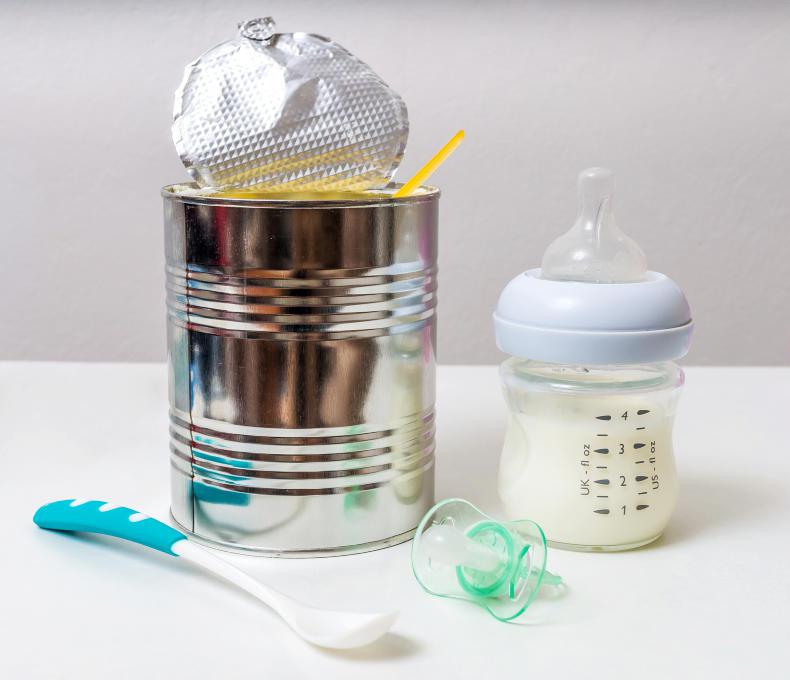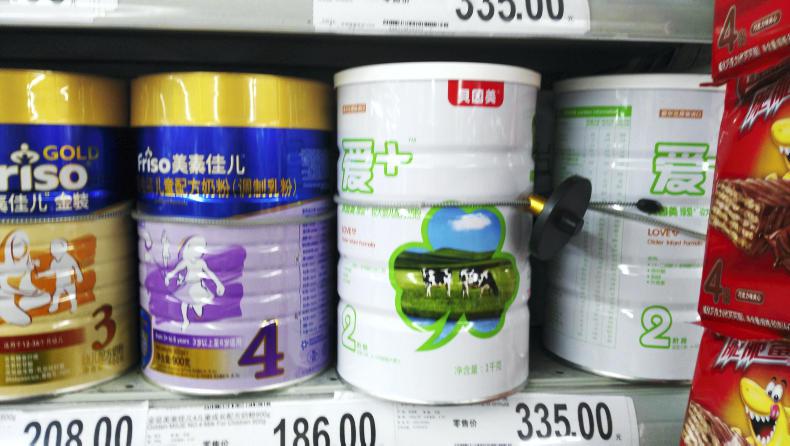It’s been a difficult week for France’s dairy industry as a salmonella infection scandal in infant formula products continues to escalate. Lactalis, the privately owned French dairy giant, announced on Sunday it was recalling 12m boxes of infant formula from retailers in 83 different countries that are contaminated with salmonella.
These recalls include product exported to markets in Europe, Africa, South America and China, which is the world’s largest baby formula market, importing a record 300,000t last year.
The situation deteriorated further for Lactalis on Wednesday when police raided the dairy giant’s headquarters as the patience of French authorities wears thin.
Lactalis first issued a product recall for 12 of its infant formula products in early December, after 20 infants were infected with salmonella. However, the extent of the salmonella contamination became much worse than initially thought.
By mid-December, the French economic ministry had published a list of 620 batches of infant formula made by Lactalis that had been recalled. This figure has now risen to 12m items of Lactalis-made infant formula, with 37 children now reported ill having consumed the infected baby formula.
Emmanuel Besnier, president of Lactalis, announced on Sunday that the company will pay damages to the families affected by the contaminated infant formula. However, the biggest cost from this salmonella scare could be the damage to reputations, not only to France’s dairy industry, but Europe’s as well.
Lessons from New Zealand
In the infant formula game, reputation is everything as the New Zealand dairy industry will testify. In 2013, Fonterra issued a recall on a number of batches of its whey protein over concerns it was contaminated with botulism. While this turned out to be a false alarm, it forced French dairy giant Danone to recall infant formula products containing this whey protein ingredient from eight countries, including China.
Danone has since sued Fonterra over the incident which resulted in lower sales and was recently awarded €105m in damages.
Up to 2013, New Zealand was always one of the top two exporters of infant formula to China, supplying about 20,000t per annum. However, the botulism false alarm badly damaged the New Zealand dairy industry’s image and infant formula exports to China plunged by half to just over 10,000t the following year.
The reputation damage caused by the false botulism alarm allowed dairy exporters in Europe, including Ireland, to fill the void in the Chinese market. The Netherlands, Germany, Denmark and Ireland all saw a huge upswing in infant formula exports to China over the last four years, as Chinese buyers now deem European product to be the safest in the world.
The Netherlands is now the undisputed top supplier of infant formula to China, exporting over 90,000t last year, giving it a 30% share of the market. Ireland holds a 13% share of the market in China, exporting close to 40,000t last year.
However, the big story of 2017 in terms of infant formula exports to China was France. French baby formula exports to China showed a threefold increase last year to hit a record 41,500t, giving France a 14% share of the lucrative Chinese market.
Bad timing
As such, the timing of the current salmonella contamination scandal could not be more unwanted. Infant formula manufacturers across Europe have benefited massively in recent years from the growth in demand from China.
Over the last five years, Chinese import demand for infant formula has increased sixfold from roughly 50,000t per annum to a record 300,000t last year. The reason for the rapid increase in Chinese import demand is because Chinese consumers do not trust domestically produced infant formula since the 2008 melamine scandal when six babies died.
The current situation in France is doing no favours for the wider European dairy industry. When compared to other food scares in Europe such as the horsemeat scandal, the Lactalis response to this salmonella contamination has been far from decisive.
Lactalis has been dragging its heels on this very serious issue for almost two months now and it’s unsurprising to see French police raid its offices on Wednesday morning. The scandal is also embarrassing for the French government after President Macron recently travelled to China to promote French food exports.
The reality is that food scares will happen from time to time. However, trust is maintained in a country’s food production system once it’s clear the mechanisms are in place to swiftly identify and intercept contaminated products. The slow drip effect of the unfolding scandal at Lactalis will undoubtedly raise serious concerns among dairy buyers the world over, which is no good for the reputation of Europe’s food safety systems.






 This is a subscriber-only article
This is a subscriber-only article












SHARING OPTIONS: